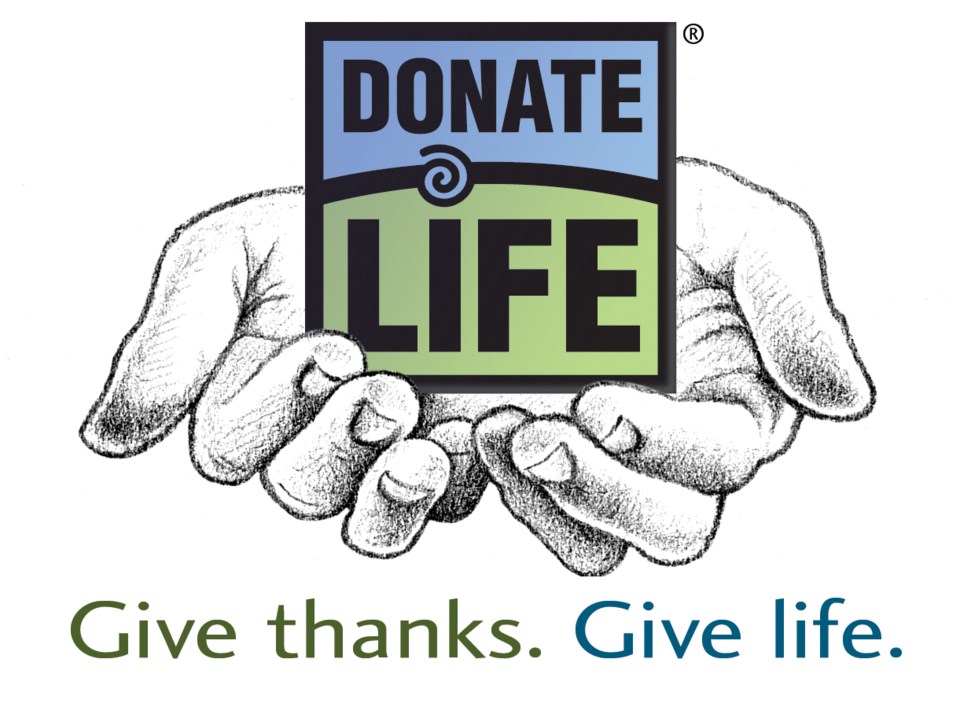Only one per cent of Saskatchewan residents are organ donors, and lung patient Charlotte L’Oste-Brown is willing to use her last breath to try and encourage people to volunteer to donate their organs in the event of their death.
Members of the Rotary Club of Weyburn heard from her on Thursday as she explained what her current medical condition is, and the challenges she faces as a person who needs a double-lung transplant.
She began to have trouble breathing in June of 2003, and woke up one morning with her arms three times their normal size. By September, she had been diagnosed with polymyositis, which is a chronic inflammatory disease of muscle tissue, and it quickly spread to her organs, in particular her lungs. The disease caused a thickening of lung tissue.
“I was told seven out of 10 people die within 10 years of diagnosis. I’ve surpassed that as I’m now in my 14th year since then, but not everybody does. I met one person who died within six months of finding out,” said L’Oste-Brown.
When she was diagnosed, she asked her doctor why she couldn’t have a lung transplant.
“She said the disease will get very nasty. We were nowhere near getting a lung transplant at that time. I will be on my last breath before I will be considered for a transplant,” she said, noting she changed her diet and did exercises to help her stay healthy, plus she uses medication to help her be able to cope. Still she has had cut back on her activities as her body isn’t able to be as busy as she once was.
“I used to go shopping at random … but now things like that just tire me out,” said L’Oste-Brown, noting that her condition has meant all those around her have also had to make adjustments as they deal with her health issues.
If and when she gets the call that a lung donation has come in for her, she has to be able to travel to Edmonton literally at a moment’s notice, and to prepare for that, she has sold off all her belongings and is renting. Once she travels to Edmonton for the transplant, she will have to live there for three months so she can be near her doctors as they monitor her health.
“Needless to say, it costs a lot of money,” said L’Oste-Brown, noting that her family and friends have held fundraisers to help her out with the expenses, which would include hiring a 24-hour-a-day caregiver to stay with her once she’s had the transplant. She has been on 24-hour standby since Dec. 1, as a call could come in at any time for her to come immediately to Edmonton to get the transplant. When a call comes, she would be taken straight to Edmonton by air ambulance, and would be on the operating table within five hours.
“There haven’t been any lungs come in of the right size and blood type,” she said, adding that her doctors have encouraged her to go out and speak to people about the need for organ donations.
“Am I scared of the operation? Hell, no,” she said, noting only one per cent of people in Saskatchewan have indicated they are willing to donate their organs in the event of an accident or other form of death.
L’Oste-Brown said there has been a lot of misinformation about organ donation, one of them being that a smoker’s lungs could not be used. Even though she requires a new set of lungs, she could use lungs from a smoker.
It’s important for people to know that there is no age limit to donating organs, and noted 257 children died in Canada last year waiting for organ donations. Referring to the tragedy of a family who was killed in accident last year, she said the organ donations from those victims saved a total of 51 lives.
She just recently found out there is an app on iPhones by which a person can indicate they are willing to donate their organs. “You can put your information on that so if you’re in an accident, that’s the only part of your phone that isn’t locked,” said L’Oste-Brown.
“I encourage you, if there’s something you’d like to do to give the gift of life beforehand, it’s very important that you do that,” she added, encouraging people to let their friends and relatives know that your intention is to donate your organs should the opportunity arise.
“It’s best to be prepared. It relieves a lot of stress,” she said.
For herself, she was encouraged to have everything in order beforehand, “so you know what you’re going into.”




